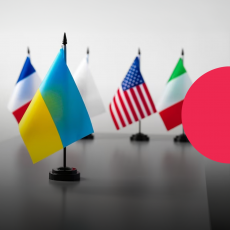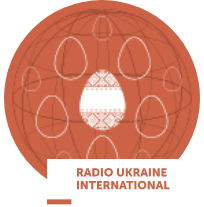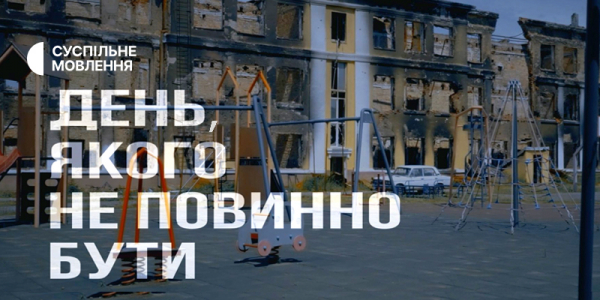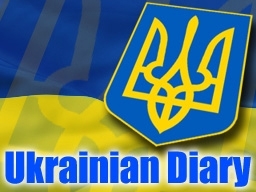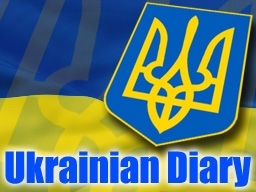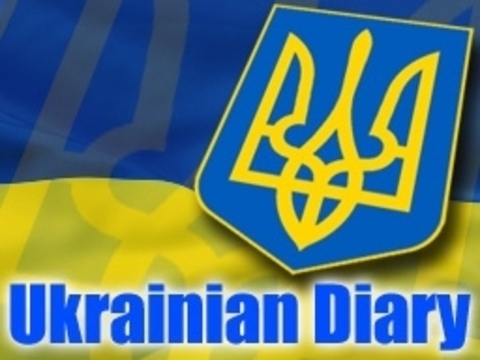Military Conflict in Donbas – Weekly Overview.
Pro-Russian separatists keep shelling the Ukrainian positions in Donbas along the whole contact line. Civilian population on the temporarily occupied territories suffered more losses this week. On Monday it was informed that a deadly explosion in occupied Donetsk left one child dead and two more injured. The explosion occurred after children attempted to open a shell, which they had discovered in a sand-pit on school grounds. As a result of the blast, one 10-year old boy died while two of his friends were seriously injured. Maenwhile, the headquarters of the Ukrainian intelligence service informed, that the combined Russian-separatist forces keep mining territories around their deployment areas, particularly near the temporarily occupied cities of Donetsk and Luhansk. Speaker of the Counter- terrorism operation headquarters colonel Andriy Lysenko said ah his briefing held in Kyiv on Friday, “The mining of roads and areas around the occupied Donetsk and Luhansk deprived local dwellers of their traditional lines of communication. To suppress the growing discontent of local people who have to go through additional checks of road – blocks when crossing the contact line, the Russian occupation government is conducting a disinformation campaign and prepares to demonstrate the so-called liquidations of the fake sabotage-reconnaissance groups as if sent by the Ukrainian forces.”
According to Alexander Hug, OSCE SMM deputy head, the military conflict in Donbas is far from being considered ‘frozen’. The conflict will be more unpredictable and may lead to more victims among civilians, if sides continue to ignore the Minsk agreements, - he said. ‘It is important that we understand this: recently, positions of the warring sides have approached the division line, even though the line itself has not moved much. Brutal fights are taking place here and there. This conflict provoked a lot of violence; over this year alone, about 300,000 ceasefire violations were observed. This means that the conflict is far from being ‘frozen’. It’s still in the active phase, and it’s still quite unpredictable,’ Hug said.
The White House is getting ready to offer the Kremlin a plan, which foresees deployment of 20,000-strong contingent of UN peacekeepers in the war-torn Donbas. According to the American media, Donald Trump’s administration allegedly approved the supplies of Javelin, the anti-tank missile launchers (which the White House already denied officially); the outlet assumed the U.S. might use these supplies as a leverage in solving the conflict in Eastern Ukraine. Earlier, while speaking before the UN Security Council and the UN General Assembly, President Petro Poroshenko expressed confidence the UN peacekeeping mission in Donbas must be deployed all over its territory, which will cut off the supplies to pro-Kremlin militants.
Meanwhile, the occupational administration in Crimea keeps using all sorts of pressure against the Crimean Tartars. The Russian police conducted searches in the apartments in the towns of Bakhchysarai, Staryi Krym and Zarichne village in Simferopol district. According to Crimean Solidarity, the human rights watching organization, the law enforcers checked houses of Seitumer Seitumerov, Alimdar Bilyalov and Eldar Kantimirov; none of them are known for any sort of political activity or involvement in political forces. The regular searches among Crimean Tatars have been a common procedure performed by the Russian police, since Russian troops occupied Crimea in February 2014.
Ukraine Welcomes Resolution of EU Committee of Ministers Recognizing Russia’s Responsibility for Implementation of Minsk Accords.
The Foreign Ministry of Ukraine has welcomed the resolution by the Committee of Ministers of the Council of Europe, which recognizes, in particular, the responsibility of Russia for the implementation of the Minsk agreements. As we have reported, on November 8th, the Committee of Ministers of the Council of Europe has adopted the resolution in favor of Kyiv, emphasizing Russia’s responsibility primarily for ceasefire and the withdrawal of troops, armed groups and military equipment, and urging it to rapid and full-scale implementation of Minsk.
By adopting this resolution, the European council’s Committee of Ministers had also reiterated its commitment to full implementation of all the measures previously agreed upon in relation to the situation in Ukraine. Particularly, the resolution of May 3rd 2017 regarding Crimea and the city of Sevastopol, urging Russia to abide to the international humanitarian law and international HR law, and stop its repressive actions against the Crimean Tatar community.
"We welcome the consideration given to the necessity of protecting the civilian population suffering from the conflict caused by the Russian aggression against Ukraine," reads the MFA statement. The ministry has also supported the Europ council’s appeal to secure unhindered access to the temporarily occupied eastern Ukrainian territories for humanitarian organizations. «We expect Russia to take respective measures to provide their access particularly in non-government controlled areas of Donetsk and Luhansk regions.», reads the statement.
The resolution by the Committee of Ministers mentions also Ukraine’s achievements in the reforming process. President PP has also welcomed the Committee’s resolution on his FB page, expressing his thankfulness for the support, and underlining Russian responsibility in implementing Minsk in the resolution.
Ukrainian National opera Turned 150.
On Wednesday, Nov. 08 Ukraine’s national opera marked its 150th anniversary. The first permanent opera company was formed in Kyiv in the summer of 1867 by former singer and entrepreneur Ferdinand Berger. He invited many talented performers to the new theater. The Kyiv City Council presented the company with a building. November 8, 1867 witnessed the opera’s first night. During its first years the Kyiv opera staged mostly works by Russian composers and sometimes European classics. In 1874, the opera Christmas Night by Mykola Lysenko, founder of the Ukrainian school of classical music.
In 1896 the opera building was completely burned down. The City Council announced a design competition for the project of a new building of the Kyiv Opera House. Academician Viktor Schreter was announced as the winner in 1897. The construction of the new opera house lasted 4 years. The ceremony of grand opening took place on September 15, 1901. The theater has preserved its initial exterior till the present day. The jubilee of the National Opera was marked by a gala concert. Aniko Rehviashvili, head of the National Opera ballet company said, “Performing in the concert were both – opera singers and ballet dancers, as well as the opera orchestra. The concert included pieces of Ukrainian and world classics, including an abstract from the ballet dubbed The Forest Song, based on the famous poem by Lesya Ukrainka, outstanding Ukrainian poetess of the 19th – 20th centuries. There were also a number of festive events taking place in Kyiv on this day, such as the presentation of a commemorative coin and a post marke dedicated to the Opera’s jubille.”
Ukraine Marked Day of Ukrainian Language.
Thursday, November 9th, marked Ukrainian Language and Literature Day for the 20th time. The date was established in 1997, when Leonid Kuchma, Ukrainian president at the time, decreed to mark the date, supporting the initiative by civil society groups and considering the importance of Ukrainian language for the consolidation of society. The date also corresponds to one in the Orthodox church calendar, which pays homage to Monk Nestor the Chronicler, a follower of the Slavic alphabet founders Cyril and Methodius.
Ukrainian Language and Literature Day traditionally celebrates the outstanding popularizers of the Ukrainian word, and launches an international contest of experts in Ukrainian language named after Ukrainian Canadian businessman and philanthropist Peter Yatsyk.
Head of the contest’s coordination council and executive director of the League of Ukrainian Philantropists told Radio Ukraine about the structure of the contest. Mykhailo Slaboshpytsky said, “Every year the contest kicks off in a different city. Now it is Khmelnytsky. Its structure includes 4 stages. The winners of the school contest participate in the district competitions. The winners of those go to the regional contest, competing with university and vocational school students, military school students. The winners go to the national contest to compete for cash and other valuable prizes – this is nearly a hundred people. The contest also takes place beyond Ukraine, in post-Soviet Union countries and also Canada, Australia, Greece, for example. The language competition in Ukraine is taking place simultaneously with the one in the global diaspora.”
This year the contest takes place for the 18th time. Since 2000 the date has also been marked by the national unity spelling match broadcast by Radio Ukraine. Its this year’s motto is «We are many. We are different. But united by a common goal.» Alina Akulenko, journalist and coordinator of radio spelling match event, says that anyone could take part, “One could take part in the spelling match anywhere, with anyone. You just need to organize yourself and your friends at some spot, and you are not obliged to send it to Radio Ukraine. Still, we are waiting for every letter, searching for the best examples, and them we announce the winners - those whose writing is excellent and faultless.”
The text for the spelling match contains from 100 to 200 words. The ones who make no spelling errors would be awarded. To get a prize one would need to send their writing on the 9th or the 10th of Nov. One of the spots for radio spelling match was located in the war zone in Luhansk region, which was coordinated by singer Andzhelika Rudnytska.
